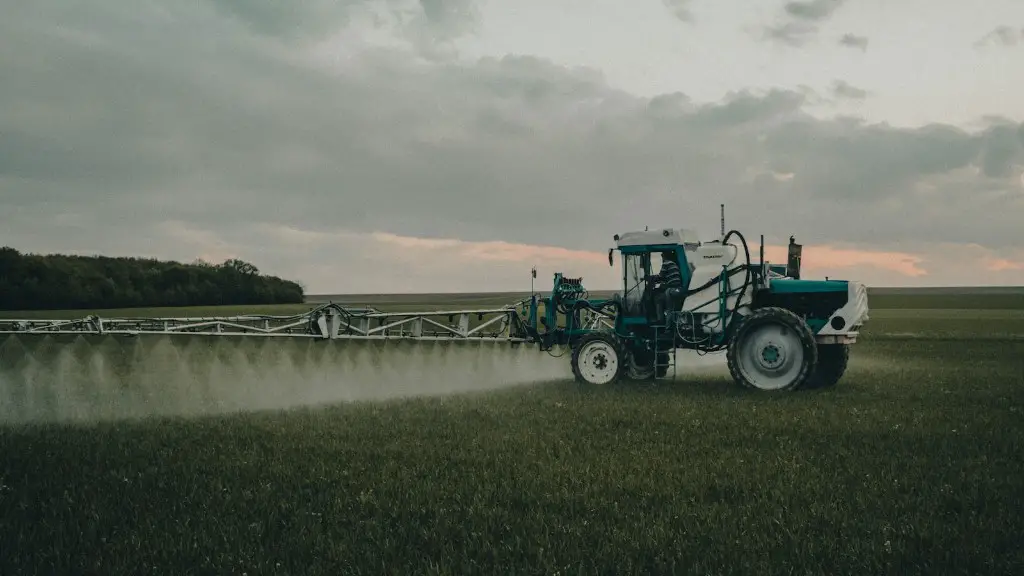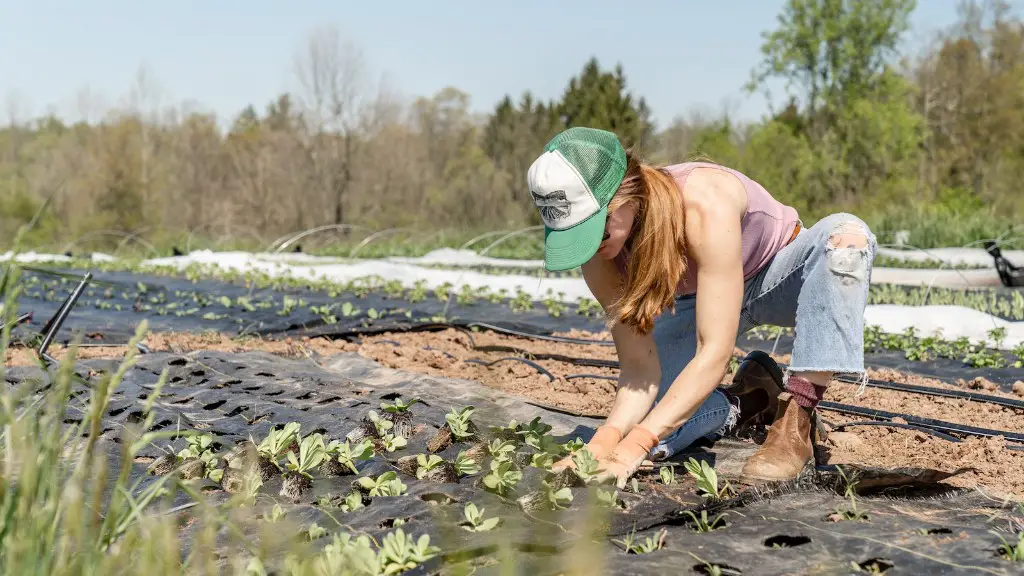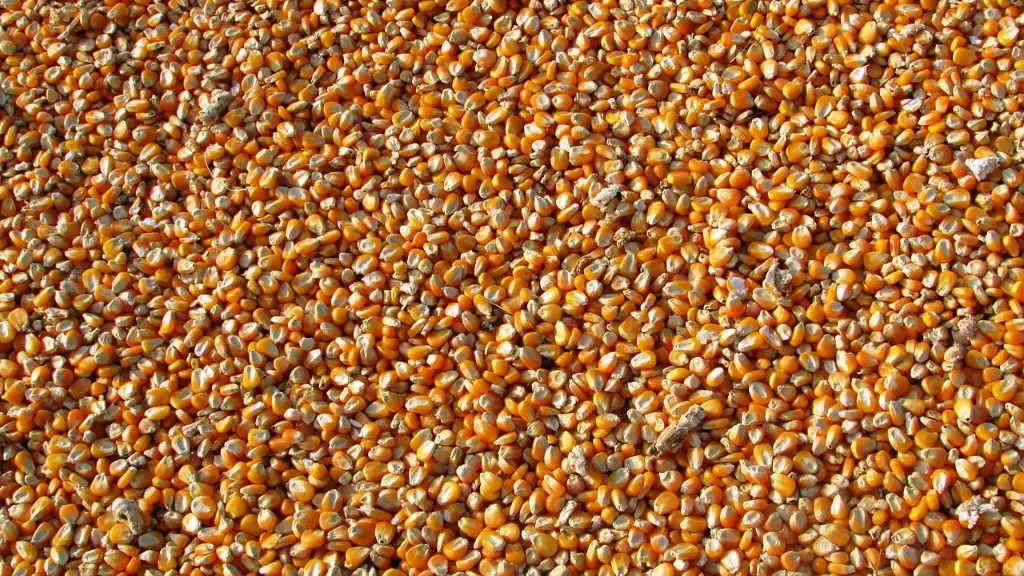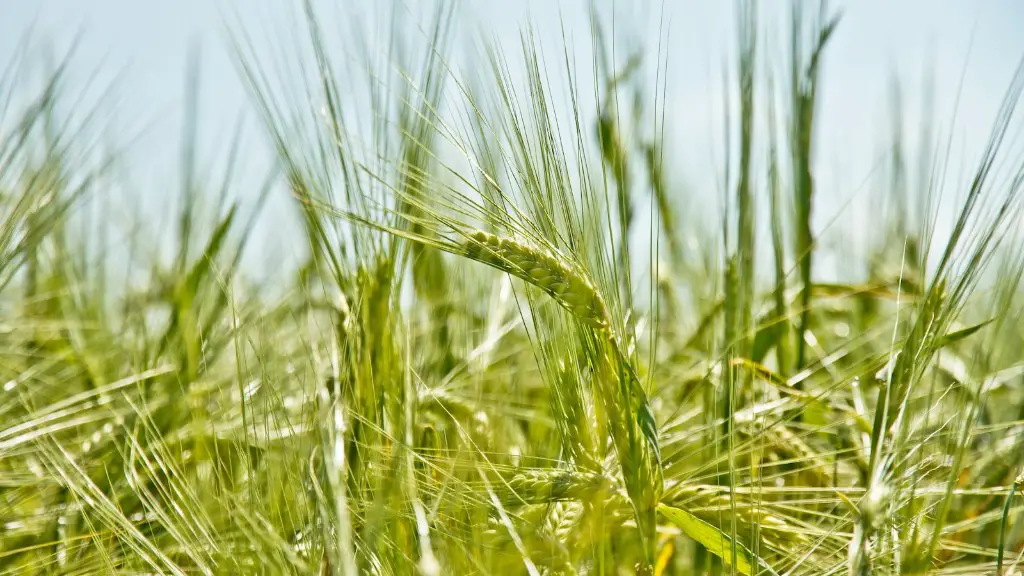There are a number of ways students can help support the agricultural industry. One way is to simply spread the word about the importance of agriculture and its role in our society and economy. This can be done through social media, conversations with family and friends, or even writing articles or blog posts. Another way students can help is by choosing to study agriculture or related disciplines in college. This helps to ensure that there is a pipeline of qualified workers to fill critical positions in the industry. Finally, students can also volunteer their time to support local farmers and ranchers or to help with food security initiatives. No matter how you choose to help, your support is critical to the future of agriculture.
There are a few things that students can do to help support the agricultural industry. One way is to buy products that are grown or raised locally. This helps to boost the local economy and helps to ensure that farmers are getting a fair price for their goods. Another way to help is to volunteer on a farm or at a farmers market. This can help farmers with the heavy workload and can also educate students about where their food comes from and how it is produced.
How can we support local agriculture?
If you want to help local professional growers, consider volunteering your time and energy. This can be just as productive as providing financial aid, and it will have a big impact on the local community. Look for farms that need help with various tasks, and offer to pitch in. You may be surprised at how much you can help!
Sustainable agriculture practices can help to improve the quality of the environment and the products that are produced. Rotating crops and embracing diversity can help to improve the soil quality and reduce the need for chemical inputs. Planting cover crops and perennials can help to improve water quality and reduce soil erosion. Reducing or eliminating tillage can help to improve soil quality and reduce the need for chemical inputs. Applying integrated pest management (IPM) can help to reduce the use of pesticides and improve crop quality. Integrating livestock and crops can help to improve soil quality and reduce the need for chemical inputs. Adopting agroforestry practices can help to improve the quality of the environment and the products that are produced. Managing whole systems and landscapes can help to improve the quality of the environment and the products that are produced.
What is agriculture for students
Agriculture is the process of producing food, feed, fiber and other desired products by the cultivation of certain plants and the raising of domesticated animals. It is both an ancient and a modern practice, with evidence of early agriculture dating back 10,000 years or more. Agriculture has played a major role in human history, shaping the development of civilizations and affecting the course of history on a global scale. Today, agriculture continues to be a vital part of many cultures and economies around the world.
Agricultural education is incredibly important, not just as an elective curriculum, but because our daily lives depend on agriculture. From the food we eat to the clothing we wear to the paper this article was printed on, agriculture is a vital part of our lives. The National FFA is one of the largest youth-led organizations in the United States, and it is dedicated to teaching young people about the importance of agriculture.
How do you help the farmers in the Philippines as a student?
There are many ways to support Filipino farmers during the National Rice Awareness Month. The best way to support them is to buy local rice. This will help keep local industries alive and thriving. Another way to support them is to invest in agriculture. This will help them to be more productive and to provide more food for the country. Finally, consider involving the sector in your community efforts. This will help to raise awareness about the importance of agriculture and the hard work that farmers do.
Farmers are some of the most hardworking and dedicated people in the world. They have to be skilled in many different areas in order to be successful. Some of the key skills that farmers need to have are problem-solving, interpersonal, farm management and organizational skills.
Problem-solving skills are important for farmers because they often have to deal with unexpected challenges that come up. They need to be able to quickly assess the situation and come up with a plan to solve the problem.
Interpersonal skills are important for farmers because they need to be able to communicate with their employees, customers and other people they interact with. They need to be able to build relationships and trust with the people they work with.
Farm management skills are important for farmers because they need to be able to effectively manage their farms. They need to be able to plan and organize work, track progress and keep track of finances.
Organizational skills are important for farmers because they need to be able to keep track of all the different aspects of their farm. They need to be able to plan and organize work, track progress and keep track of finances.
What are 5 ways to advocate for agriculture?
Advocating for agriculture can help to ensure that farmers and ranchers have the support they need to keep their operations running smoothly. By definition, advocacy is the act of speaking up for or supporting a cause or policy. When it comes to agriculture, advocates play an important role in raising awareness about the industry and its importance to the economy, food supply and way of life. Here are 10 steps farmers and ranchers can take to advocate for agriculture:
1. Define important issues or challenges agriculture is facing locally, in your state or nationally.
2. Research and analyze statistics about agriculture in your area, your state or the nation.
3. Decide who you are trying to influence.
4. Determine what you want to accomplish.
5. Develop key messages about agriculture that you can share with others.
6. Find opportunities to speak about agriculture in your community, at events or through the media.
7. Write letters to the editor or Opinion Pieces to showcase your support for agriculture.
8. Meet with elected officials and decision-makers to discuss agriculture-related issues.
9. Get involved with agriculture organizations and groups that support your industry.
10. Use social media to
These are important principles to follow to help maintain healthy soils. By avoiding mechanical soil disturbance and compaction, we can help keep soils from being degraded and help them retain their fertility. Maintaining organic matter levels is important for keeping soils healthy and able to support plant growth. And finally, keeping a cover of organic matter on the surface of the soil helps protect it from erosion and keeps it more productive.
What are three improvements to agriculture
Higher crop productivity can have a number of benefits, including decreased use of water, fertilizer, and pesticides, which in turn can keep food prices down. In addition, higher crop productivity can have a reduced impact on natural ecosystems, lessening the amount of chemicals that run off into rivers and groundwater.
Farmers are some of the most important people in our society. They provide us with the food we need to survive, and they play a vital role in the economy. However, many people are not aware of where their food comes from or how it is produced. This can lead to a disconnect between consumers and farmers.
Farmers who want to help educate consumers in their communities can do so in a number of ways. Farm tours or other on-farm events are a great way to show people where their food comes from and how it is produced. School visits are another great way to reach out to the community and educate consumers about the importance of agriculture. Library displays, fairs, and farmers markets are also great opportunities to educate the public about the importance of farmers and farming. Finally, service club presentations and in-store education are also great ways to reach out to consumers and educate them about the role of farmers in our society.
What is the importance of agriculture in our daily life?
Agriculture provides most of the world’s food and fabrics Cotton, wool, and leather are all agricultural products Agriculture also provides wood for construction and paper products These products, as well as the agricultural methods used, may vary from one part of the world to another. In some parts of the world, agriculture is very primitive, while in other parts it is very modern. However, it is all agriculture, and it is the single most important industry in the world.
Agricultural education is important because it teaches students about the food system, from production to consumption. Through agricultural education, students learn where their food comes from and how it is produced. They also learn about the environmental impact of agriculture and the importance of sustainable practices. In addition, agricultural education teaches students a variety of skills that are useful in any career, including science, math, communications, leadership, management and technology.
What are 5 reasons why agriculture is important
Agriculture is the main source of raw materials for many industries, including cotton and jute fabric, sugar, tobacco, and edible and non-edible oils. Many other industries, such as the processing of fruits and vegetables and rice husking, also get their raw material mainly from agriculture.
Mobile phone applications can help youth to see agriculture as an exciting and innovative industry, rather than the stereotypes of traditional farming. By using apps for farming activities, youth can learn about new technologies and methods that are being used in agriculture today. This can help to change their perceptions of agriculture, and make them more interested in pursuing a career in this field.
How can farmers problems be solved?
There are a few things that farmers can do to increase their productivity and inspire young people to stay in rural regions. One is to invest in new technologies and learn how to use them. This will help them stay competitive against global economic factors. Another is to be resilient and adapt to changes. This will show young people that farming is a viable option and encourage them to stay in rural areas.
When we purchase fair trade products from our local farmers, we are supporting sustainable practices and encouraging farmers to continue using natural farming techniques. By increasing the demand for these products, we can help change the tide and make a positive impact on our local community and environment.
How do I become a successful agriculturist
There is no doubt that hard skills are essential for success and advancing in the agricultural industry. Biological expertise, commercial and market expertise, and tech-related information are all essential skills for being an agriculturist. Having a background in equipment and machinery is also a major plus. With the ever-changing landscape of the agricultural industry, it is more important than ever to have a well-rounded skillset. Those who have the hard skills needed to succeed in this industry will be in high demand.
Having a successful career in agriculture requires having a versatile skill set. Being able to adapt and change with the industry is essential. Strong communication skills are also key in order to be able to interact with clients, customers, and suppliers. Being well-organized will help you to keep track of the many moving parts that are involved in agriculture. And finally, being technology literate is becoming increasingly important as technology plays a bigger role in agriculture.
Conclusion
There are a few things that students can do in order to help the agricultural industry. One way is to become involved in agricultural advocacy groups. These groups work to raise awareness about the importance of agriculture and the issues facing the industry. They also lobby for policies that support the industry and farmers. Another way students can help is by choosing to study agriculture or related fields in college. This helps to ensure that there is a steady supply of qualified workers for the industry. Finally, students can support the industry by purchasing products that are grown and produced domestically.
There are a few things that students can do in order to help the agriculture industry. One way is to intern or get a job at a farm. This allows students to learn about the industry and see first-hand the issues that farmers face. They can also join organizations that support farmers, such as the National Farmers Union. Students can also advocate for pro-agriculture policies. And, finally, they can spread the word about the importance of agriculture and the issues that farmers face. By taking some or all of these actions, students can help the agriculture industry.





